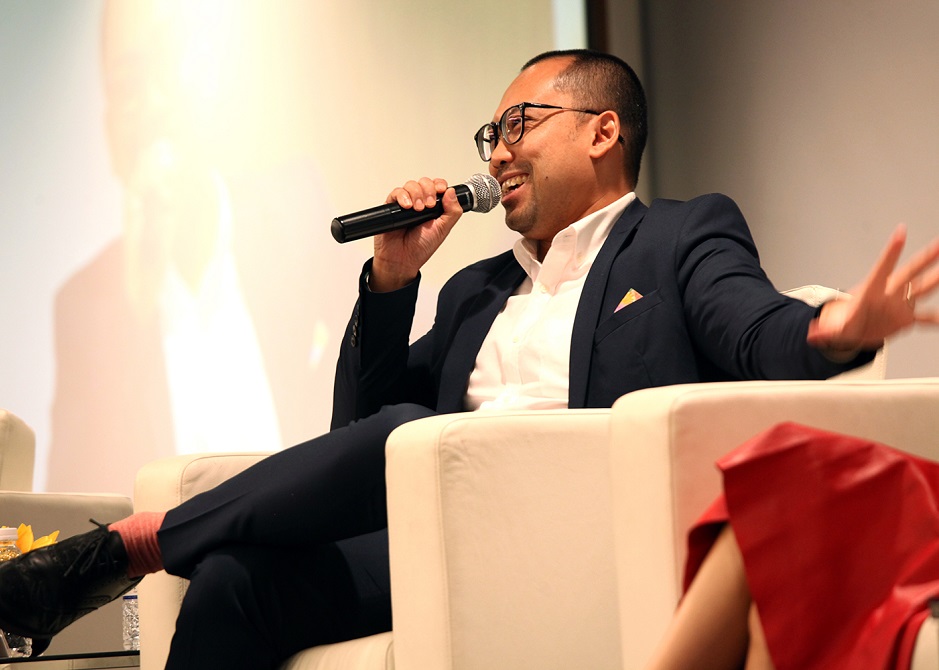Picture this: you’re hiring for your company, and have a stack of applications to go through. One of them is from someone who’s been through 13 jobs in 19 years. What’s your first reaction?
If you’re like most recruiters, you may be tempted to toss it out. This could be a person who can’t hold down any job for long. Someone undecided and non-committal.
To be fair, that may be true of several such candidates. But this is Imran Johri. He’s not a job-hopper—he’s a job-grabber, seizing the next opportunity even if he’s barely into the last one. Even though he’s jumped several times, he’s really only moved within four broadly related industries: entertainment, journalism, recruitment and marketing.
And he is quick to emphasise that he wouldn’t have been able to do any of his jobs, without doing all the ones that came before.
If you are worried about what it takes to stay afloat in a complex, fast-changing world—if you are concerned about how your children can chart a career in an economy defined by technological disruption and automation—Imran’s story is one you will want to know.
Today, the 44-year-old father of two (and a third on the way) is head of marketing and public relations at REAPRA, a venture capital group. But he cut his teeth back in 1999 in a vastly different scene, as scriptwriter for the well-loved Singaporean sitcom Phua Chu Kang Pte Ltd.
At the time, the Singapore economy was still reeling from the Asian Financial Crisis. Imran, fresh out of university, knew he wanted to write for television. So he hustled for the job through a personal contact. “I told someone in [the then-Television Corporation of Singapore], let me produce a show segment for you. For free. If you like it, hire me.” The gambit paid off. He went on to write an award-winning season of Phua Chu Kang, then hosted his own ‘live’ variety show for a year. Even when corporate restructuring led to his retrenchment, Imran, still in his mid-20s, continued writing—this time for magazines like Torque and Men’s Health, then a Malaysian newspaper, and a Hong Kong magazine.
An editorial job at a recruitment agency turned out to be a pivotal moment for him, as he switched tracks to work in recruitment marketing, with a major focus on digital transformation for the organisation.
“I don’t think it will stop anytime soon,” says Imran. “Whatever interests me, whatever I find exciting, I’ll grab it. I have enough skill sets to pull off a lot of things.” What’s his advice, then?
1. Be open, and find your thing
“Adapting to different industries requires a very open mind,” says Imran. “A mind that can absorb and learn, even if the curve is steep.” He credits his parents for developing this trait in him by loosening the reins on his hobbies as a youth, which included a “rebellious skating phase”, and continuously plying him with books.
This is something he now passes on to his children, aged 5 and 3. “We let them try everything. As much as we can possibly afford.” Living next to a sports complex helps—his children get to try everything from swimming to archery, just to see what sticks. “I’d be very worried if my child had absolutely no passion,” he says.
Undergirding this is Imran’s belief that everyone has something they are really happy doing. “You need to find your thing. And let your children find their thing.” For him, it is writing. Even though his career path has branched off from that, he is constantly looking for ways to still do it—and in fact currently has a new television show in the works.
2. Don’t know? Keep trying
What about technical knowledge, then? Having an open mind is one thing, but is it enough when you move to an unfamiliar field? Here, Imran has a deceptively simple solution: just keep trying. “Six years ago, I knew nothing about ecosystemic network distribution,” he says. At the time, his recruitment agency posted their clients’ job openings and matched them with CVs of candidates. They did not have the means to find out which matches were successful, but wanted to.
To track the outcomes, Imran had to learn to set up databases, build the ‘ecosystem’ between clients’ systems and his own, and understand how push advertisements worked. It was a slow, difficult process. But he took it in his stride. “The end result is always fantastic whether you fail or succeed, because you learn. But failure is better because it makes you more resilient.”
And this resilience, he feels, can be nurtured. “Not by motivation,” he clarifies. “Motivation comes and goes. It’s discipline. I live by this mantra: It’s not a matter of who’s going to let me, but rather, a question of who’s going to stop me.”
3. Show your face
Having spent the latter half of his career in recruitment marketing and brand consultancy, Imran knows how important the luck of the draw is. “It’s a numbers game,” he concedes, pointing to the hundreds of hopefuls for a single position, and how unpredictable the shortlisting process can be.
“But the thing about luck is you can manipulate it,” he says with a grin. How? By constantly turning up for events, and getting to know people. “Of the 13 jobs I’ve had, one was because I was headhunted. I got the other 11 because of people who knew me and could vouch for me. Not some computer, not some filtration system.”
In other words, he’s never had his CV thrown out by a recruiter, because he’s never had to submit one.
The psychology behind this is simple: if you’re looking for someone to fill a position, you’re more likely to think of and trust someone you already know, than an impersonal document. The more people you know, the more the opportunities open up. It is still a numbers game, but one with more favourable odds.
Imran’s advice is to keep improving these odds. “Networking events? Just go,” Imran says emphatically. “Don’t stick to the same social circles. Be shameless when it comes to your own success, because no one else will do it for you.”





.jpg)
